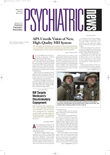New data suggest that it is a mother’s major depression, not her use of antidepressants for that depression, that may slow weight gain in nursing infants.
Researchers at the University of California at Los Angeles (UCLA) Neuropsychiatric Institute found that when infants ingested the breast milk of mothers who were taking antidepressants for short-term depression or none at all, there was no effect on their weight gain.
Yet mothers who took antidepressants but still had episodes of major depression lasting two months or more had infants who weighed significantly less than those of their healthier counterparts.
The results of the study appear in the April Journal of Clinical Psychiatry.
To measure the impact of antidepressant exposure on the development of nursing infants, lead author and investigator Victoria Hendrick, M.D., recruited 78 mothers who breastfed while taking one of six antidepressants: citalopram, fluoxetine, fluvoxamine, paroxetine, sertraline, and venlafaxine.
Hendrick is an assistant professor of psychiatry and director of the UCLA’s Pregnancy and Post-Partum Mood Disorders Program.
The mothers were patients in the program who sought treatment for depression and anxiety disorders between 1997 and 2002.
Hendrick and her team used a DSM-IV checklist to assess the mothers’ moods during the postpartum period. They also weighed the infants in the sample at six months. They then compared the weights of infants of mothers who experienced episodes of depression lasting longer than two months, infants of mothers who experienced episodes of depression for fewer than two months, and the national weight norms calculated by the Centers for Disease Control and Prevention for six-month-old infants.
The average six-month weights for infants in the study were 16.1 pounds for girls and 17.6 pounds for boys, which were virtually identical to CDC-published weight norms. The average weights for infants in the sample whose mothers experienced depression for fewer than two months postpartum or who experienced no postpartum depression were similar.
However, the average six-month weights of infants whose mothers experienced major depression for longer than two months were 14.7 pounds for girls and 16.1 pounds for boys—significantly lower than the weights of the other infants in the sample.
Hendrick told Psychiatric News that maternal depression may lead to behaviors on the mother’s part that interfere with normal weight gain in infants. “This is one more way maternal depression can have an adverse impact on children,” she said.
There is a multitude of ways a mother’s depression could influence breastfeeding, Hendrick noted, but none has been studied yet.
For instance, depressed mothers may breastfeed less often or produce lower quantities of milk than do nondepressed mothers. Or the quality of the milk could differ in depressed mothers. “The milk may be less nutritious or contain higher levels of the stress hormone cortisol, which could then impact weight gain,” Hendrick said.
She added that there is also a possibility that the infants, who share such a close bond with their mothers, sense depression, become withdrawn, and breastfeed less often.
She said subsequent research should focus on mother-infant breastfeeding interactions over the postpartum period in depressed women.
Hendrick emphasized that her findings “support evidence that clinicians should screen for and aggressively treat depression in new mothers—treatment not only benefits the mother, but the child as well.”
She advised that psychiatrists first try nonmedication interventions, such as psychotherapy, for postpartum depression. “It’s for the times when talk therapies don’t suffice that clinicians should consider antidepressants,” she noted.
An abstract of the study, “Weight Gain in Breastfed Infants of Mothers Taking Antidepressant Medications,” is posted on the Web at www.psychiatrist.com under the April issue. ▪
